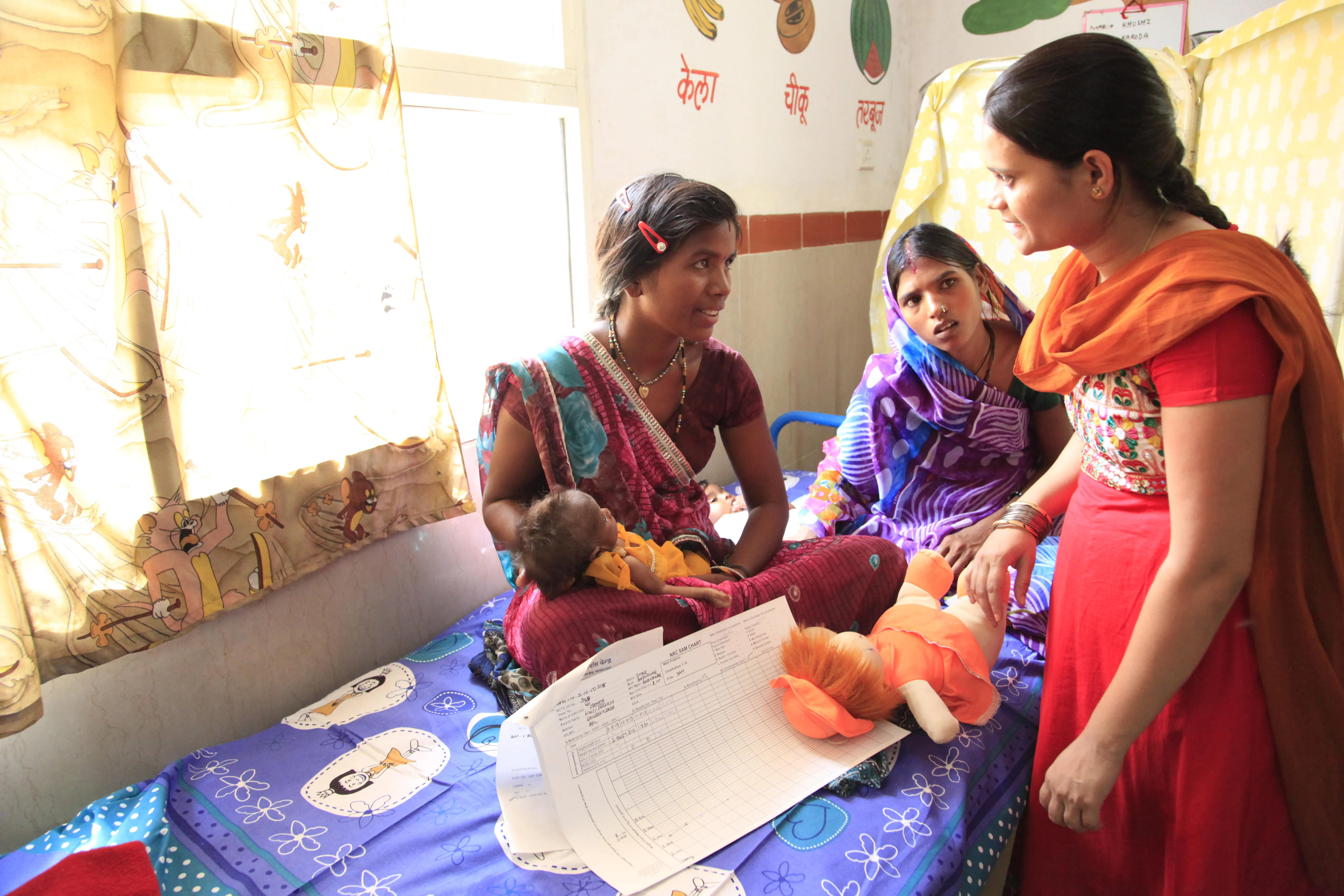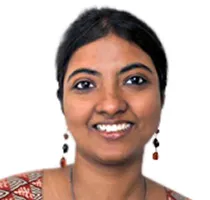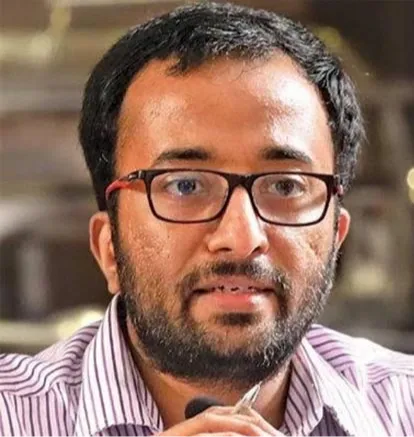Mother's milk is an integral part of the reproductive process with important implications for the health of mothers and children. Breastfeeding helps space apart births, reduces the risk of ovarian and breast cancer, and also has a protective effect against obesity. For babies, breast milk is the natural first food, it not only provides all the energy and nutrients that babies need in the initial months but also protects the child against infections like pneumonia and diarrhoea.
International organisations like the World Health Organisation (WHO) and UNICEF recommend exclusive breast feeding i.e. feeding only breast milk to the infant without any additional food or drink, not even water, for the first six months of life. WHO also recommends the initiation of breastfeeding within the first hour of life because colostrum, the yellowish, sticky breast milk produced at the end of pregnancy is the perfect food for the newborn. After exclusive breastfeeding for the first six months of life, breast feeding should be continued along with appropriate complementary foods upto two years of age or beyond.
India is a signatory to the target set by the World Health Assembly to increase the rate of exclusive breastfeeding in the first six months up to at least 50% by 2025. Countries where the rate of exclusive breastfeeding is 50% or more should aim to increase the rate of exclusive breastfeeding by 1.2% every year. Exclusive breastfeeding in India increased from 46.4% in 2006 to 54.9% in 2016 and early initiation of breastfeeding almost doubled from 23.4% to 41.6% during the same period. India’s target is to increase the rate of exclusive breastfeeding to 69% by 2025. Given the country’s high burden of undernutrition and the fact that pneumonia and diarrhoea are leading causes of death in children under five years, there is a very strong case to promote breastfeeding in India. According to a recent report by the United Nations, about 99,499 children die every year in India as a result of pneumonia and diarrhoea which can be easily prevented through breastfeeding. The report also estimates that inadequate breastfeeding could cost the Indian economy about USD 14 billion.
At the state level, most Indian states saw an increase in exclusive breastfeeding. A recent report by the International Food Policy Research Institute (IFPRI), shows that most rapid increase in breastfeeding were observed in Goa, Haryana, Himachal Pradesh, Madhya Pradesh, and Tripura. In Goa, exclusive breastfeeding increased dramatically from 17.7% in 2005-06 to 60.9% in 2015-16. Madhya Pradesh, a state with a high incidence of child undernutrition also experienced considerable improvement in exclusive breastfeeding from 21.6% in 2005-06 to 58.2% in 2015-16. In 2016, Chhattisgarh had the highest exclusive breastfeeding level at 77.2%, followed by Manipur (73.6%), Dadra and Nagar Haveli (72.7%), Tripura (70.7%), and Andhra Pradesh (70.2%). However, there is little room for complacency for India. The rate of exclusive breastfeeding in Meghalaya, Nagaland, Puducherry, Tamil Nadu, and Uttar Pradesh is lower than 50%. In Meghalaya, the proportion of children under six months who are exclusively breastfed is the lowest in the country at 35.8%. But fortunately, the level of exclusive breastfeeding in the state has increased substantially in the last decade from about 26.3% in 2005-06. In Tamil Nadu also, exclusive breastfeeding has increased from a low of 34.1% in 2005-06 to 48.3% in 2015-16. However, the level of exclusive breastfeeding in Uttar Pradesh, India's most populous state with a heavy burden of child undernutrition, is quite low at 41.6%. Sadly, the state has witnessed a drastic decline in exclusive breastfeeding from about 51.3% in 2005-06. Moreover, exclusive breastfeeding in urban Uttar Pradesh is at par with Meghalaya at about 35.6%. Other states that have experienced a decline in breastfeeding are Arunachal Pradesh, Chhattisgarh, Karnataka, Kerala, and West Bengal.

There is a strong case to promote exclusive breastfeeding in large states with a high incidence of child undernutrition, like Uttar Pradesh. However, exclusive breastfeeding is not easy to achieve. Some of the main reasons behind low rates of exclusive breastfeeding in India are:
- Societal beliefs which discourage exclusive breastfeeding and favour mixed feeding (feeding additional liquids or solids before six months because breast milk alone is not considered adequate),
- Inadequate support from healthcare personnel, family, and the community,
- Lack of inter-personal counseling for mothers and skilled support for breastfeeding at delivery points,
- Aggressive promotion of infant formula, milk powder and other breast-milk substitutes,
- Inadequate rest for women and pressure to resume household work too soon, and
- Inadequate provision of maternity leave or workplace facilities for breastfeeding.
What is India doing and what more needs to happen?
Recognising the importance of exclusive breastfeeding, the government of India has prioritised promotion of exclusive breastfeeding in recent years. Last year, the Ministry of Health and Family Welfare launched a flagship programme, Mother's Absolute Affection (MAA) to create awareness among mothers on the benefits of breastfeeding.
The decision to increase maternity leave to 26 weeks also helps mothers to exclusively breastfeed for six months. But given that most of the women in India work in the unorganised sector and also carry out bulk of the household work, there is an urgent need for steps that will increase breastfeeding among women employed in the informal sector. The Maternity Benefit Programme which provides cash transfer of ₹6,000 to compensate for the wage loss, may be regarded as a step in the right direction. But some experts have found budget allocations under the scheme to be inadequate. The government needs to find solutions which that empower women working in the informal sector and also encourage an equitable distribution of household work between men and women.
To meet the World Health Assembly target for breastfeeding, the government needs to promote breastfeeding in a big way. At the same time, it is important to create awareness about the benefits of breastfeeding, as well as initiate steps to improve breastfeeding practices.
Firstly, there is an acute need for more lactation counselors. Secondly, there is a need to ensure that women working in the informal sector get adequate pay during maternity leave. Thirdly, separate spaces for breastfeeding are needed in offices, restaurants, malls, railway stations etc., so that women can breastfeed even when they are not at home. Fourthly, the Ministry of Health and Family Welfare should the implement Baby Friendly Hospital Initiative on a priority basis. Fifthly, the government must come down heavily on companies violating the Infant Milk Substitutes, Feeding Bottles and Infant Foods Regulation of Production, Supply and Distribution Act, 1992 and Amendment Act 2003. Sixthly, better data, especially at the state level is important because at the moment there are some districts for which there is no data. Lastly, effective implementation and monitoring of all government initiatives to support exclusive breastfeeding is a must.
This commentary originally appeared in NDTV.
The views expressed above belong to the author(s). ORF research and analyses now available on Telegram! Click here to access our curated content — blogs, longforms and interviews.





 PREV
PREV




